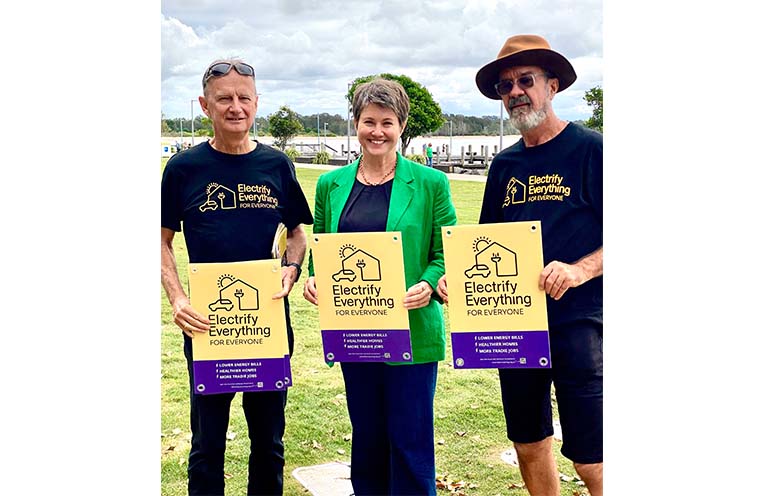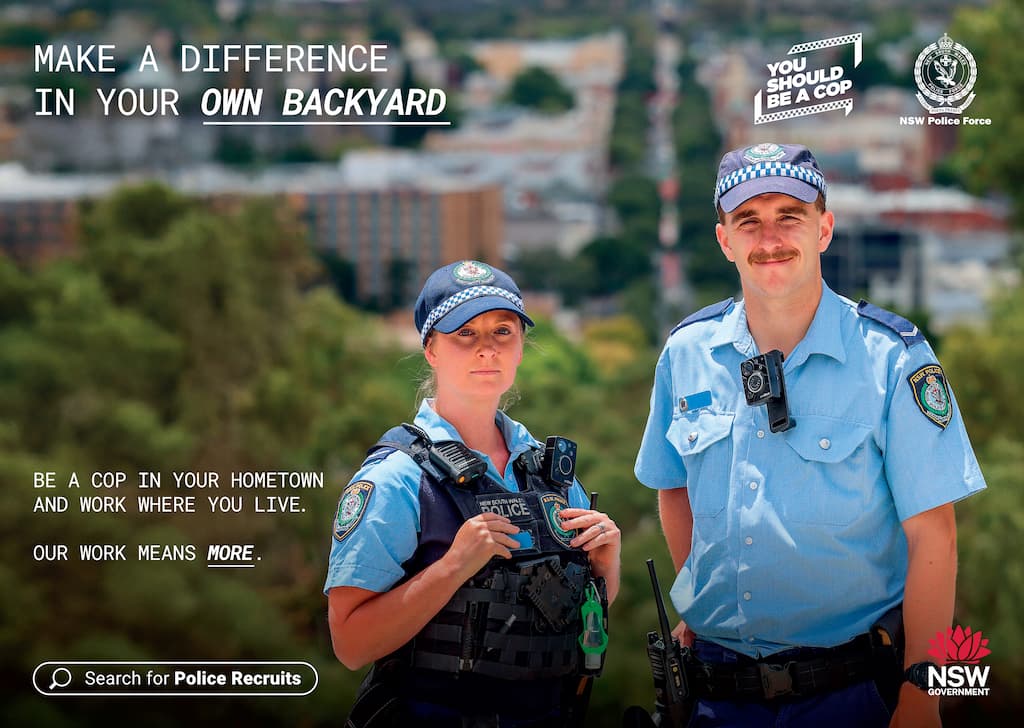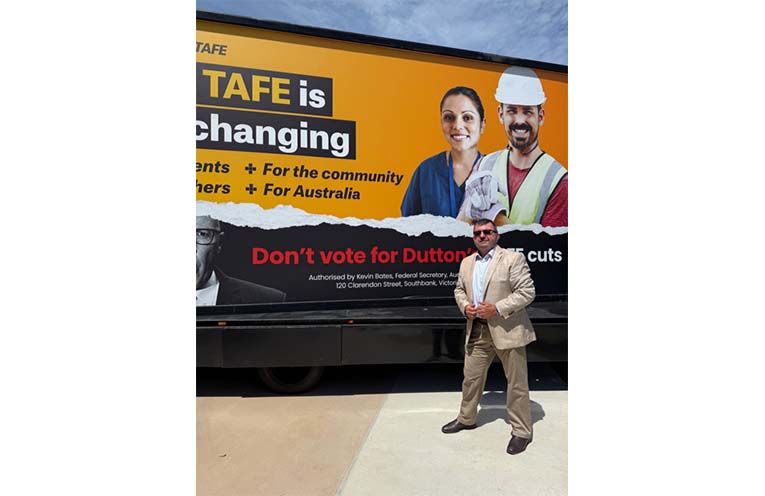
IT has been another big week of campaigning in the seat of Cowper, with multiple funding and policy announcements.
On Monday, the National Party promised to provide $300,000 to Coffs Harbour youth sporting program RISE if the Coalition is successful at the Federal Election.
 Advertise with News of The Area today.
Advertise with News of The Area today.It’s worth it for your business.
Message us.
Phone us – (02) 4981 8882.
Email us – media@newsofthearea.com.au
Federal Member and Nationals candidate for Cowper Pat Conaghan said the commitment would allow the program to continue in full for the next two years.
“With the issues we are seeing among our youth right across the country, it’s so important to recognise and safeguard our community driven organisations that are actively building a sense of support and belonging, and RISE Coffs Harbour is a great example,” Mr Conaghan said.
“RISE provides a structured curriculum that trains youth in technical football and team building skills and teaches positive values including trust, respect, discipline and patience.”
Late last week, Mr Conaghan promised $600,000 to Macksville youth program ShoreTrack.
“Tackling the issue of disenfranchised youth in our community requires a multi-faceted approach, and part of that approach is ensuring that successful programs like ShoreTrack are adequately supported to expand and thrive not just for today but into the future,” Mr Conaghan said.
“The training courses they provide not only equip our young people with important skills for future employment, they provide a support system that enhances self-worth and confidence in student-aged kids that have fallen through the cracks of our traditional education systems.”
The Coalition also promised $11 million for phase three of Bellingen Shire Council’s Sewering Coastal Villages project, if elected to government.
The National party say the funding will allow for an additional 30 new residential properties to connect to the system and “double industrial capacity at Raleigh”.
Mr Conaghan said by connecting sewerage, the project could facilitate much-needed housing in Repton, Raleigh and Urunga.
As reported in News Of The Area last week, construction on the project’s second stage is now underway.
Bellingen Shire Council originally applied for third stage funding in 2022 under the previous government’s Building Better Regions Fund, before the funding program was discontinued.
“An elected Coalition Government will right that wrong and get this funding into these works straight away, to not only safeguard our current infrastructure, but lay the groundwork for new housing and industry in the future,” Mr Conaghan said.
Meanwhile, Independent candidate Caz Heise called for the establishment of a federally-funded “Local Energy Hub” in Cowper, to help local households, farms and small businesses “cut power bills, reduce emissions, and take advantage of the shift to cleaner, cheaper energy”.
She said the Hub would operate as an outreach centre, staffed by energy experts who provide face-to-face advice and connect people with grants, installers and proven solutions.
“A Local Energy Hub in Cowper would provide clear, practical advice, connect people with funding options, and make it easier to cut bills and electrify our homes and businesses.”
The Hub model builds on existing council and community programs in towns like Hay, Narrabri and Mitchell.
Spokesperson for the national Local Energy Hubs campaign, Pat Simons, welcomed the call for a Cowper hub and said dozens of other communities across regional Australia are pushing for the same.
“We have an opportunity right now to ensure Australia’s shift to renewables delivers local, long-term benefits for regional communities,” Mr Simons said.
Ms Heise also condemned the Coalition’s proposed cuts to public service jobs.
“The proposal by Peter Dutton and supported by the Nationals will impact aged care and disability services, and our ability to respond to emergencies or provide pensioners, veterans and their families with life saving support.”
The Independent candidate pointed to the Department of Veterans’ Affairs as a key example of the damage caused by public sector cuts.
“Years of underfunding left veterans without timely access to support,” she said.
“Only recent investment in rebuilding DVA staffing levels has begun to reverse the backlog and improve services.
“Any cuts to staffing of the Department of Veteran Affairs will result in increased processing times for veteran claims, thereby increasing their stress levels, particularly for those suffering mental health issues.”
Additionally, Ms Heise pledged to collaborate with Dementia Australia on the “critical issues facing Australians living with dementia and their families”, stressing the need for immediate action at all levels of government.
Labor candidate Greg Vigors meanwhile has called for a strong emphasis from Cowper candidates on mental health issues in the electorate.
“In the short time we have left until the election, I would like to hear from all candidates on how they see this critically important issue and their plans to make a difference,” he said.
“It affects so many families in our region.
“Most of us either suffer personally from mental health issues or have someone close to them who does.
“A Federal Election is the perfect time for all of us to ask our prospective representatives how they will address this critically important issue.”
Mr Vigors told NOTA he is optimistic the funding for Medicare mental health centres recently announced by the Albanese Government can make a “big difference”.
He also applauded the government’s planned expansion and extension of Headspace services.
“Headspace already provides much needed free mental health care and support for people aged 12 to 25.
“The recent announcement expands those services through Headspace Plus centres and youth specialist care centres, where there will be a greater level of clinical support for young people with more serious and complex mental health issues.
“Those new options will drastically reduce the need for acute hospital care for young people with mental health issues.
“It means we have a much greater capacity to keep our young people out of hospital but still provide the specialist care they need.”

